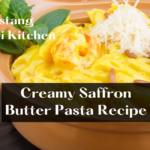When it comes to cooking pasta, there are various techniques and tips that can help you achieve the perfect al dente texture and delicious taste. However, one topic that often sparks debate is whether or not to rinse cooked pasta after it’s been cooked. Some argue that rinsing removes excess starch and prevents sticking, while others claim it washes away flavor and makes it harder for sauces to cling to the pasta.
Debunk the pasta rinsing myth
Pasta is a staple in many cuisines and offers endless possibilities for delicious meals. However, the debate over rinsing cooked pasta has left many home cooks unsure about the correct approach. To determine the best practice, it’s essential to understand the purpose of starch, the effect of rinsing on starch, and the impact on flavor and sauce adherence.
The Rinsing Myth: Does It Remove Starch?
The Purpose of Starch
Starch is a complex carbohydrate found in pasta that is released during the cooking process. It plays a crucial role in giving pasta its characteristic texture and binding sauces to the noodles. The starch released during cooking helps create a smooth and creamy mouthfeel when combined with sauce.
The Effect of Rinsing on Starch
Rinsing cooked pasta with water immediately after cooking can remove some of the starch from the surface of the noodles. While this can reduce the stickiness of the pasta, it also washes away some of the desirable starch that helps sauces adhere to the noodles. As a result, rinsing pasta may negatively impact the texture and overall flavor of the dish.
The Rinsing Myth: Does It Prevent Sticking?
Proper Pasta Cooking Techniques
The key to preventing pasta from sticking together during cooking is to use an adequate amount of boiling water and stir the noodles regularly. By using a large pot with plenty of water, the pasta has enough space to move around, reducing the likelihood of clumping. Stirring the pasta during the first minute of cooking further prevents sticking.
Using Sauce to Prevent Sticking
An effective way to prevent pasta from sticking together is to toss it immediately with sauce after draining. The residual heat from the cooked pasta will help the sauce cling to the noodles. This method ensures that the pasta remains flavorful, properly coated, and prevents the need for rinsing.
The Rinsing Myth: Does It Affect Flavor and Sauce Adherence?
Flavor Impact of Rinsing
Rinsing pasta after cooking can have a noticeable impact on the flavor. The starchy water clinging to the pasta adds a subtle richness and enhances the overall taste of the dish. By rinsing, you dilute and wash away this starchy water, potentially resulting in a less flavorful pasta.
Sauce Adherence and Rinsing
The starch on the surface of the pasta helps sauces adhere to the noodles, creating a harmonious combination of flavors. Rinsing pasta removes the starch, making it more challenging for sauces to cling to the noodles. As a result, the sauce may slide off the pasta, leading to a less satisfying eating experience.
Best Practices for Cooking and Serving Pasta
To achieve the best results when cooking and serving pasta, follow these best practices:
- Use a large pot of boiling water with an ample amount of salt to cook the pasta.
- Stir the pasta during the first minute of cooking to prevent sticking.
- Cook the pasta until it reaches the desired level of doneness (al dente is recommended for most pasta types).
- Drain the cooked pasta promptly, reserving a small amount of the cooking water for thinning the sauce if necessary.
- Toss the drained pasta immediately with the desired sauce or ingredients to prevent sticking and ensure optimal flavor and texture.
Conclusion
The debate over rinsing cooked pasta has been ongoing, but the evidence leans toward not rinsing as the preferred method. Rinsing removes starch, impacts flavor, and hinders sauce adherence. By following proper pasta cooking techniques and tossing the drained pasta with sauce, you can achieve perfectly cooked noodles that are flavorful, properly coated, and free from clumping.




